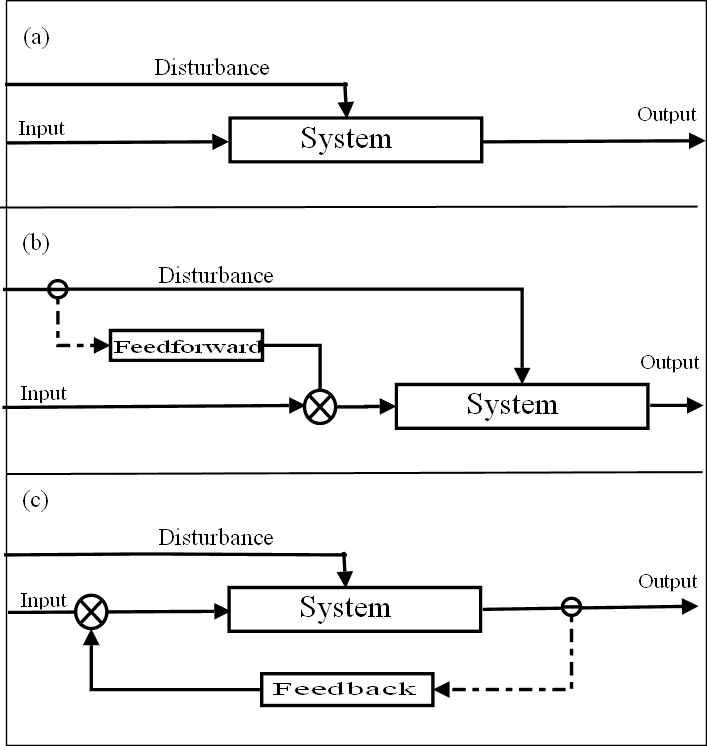It is arguable what is called reactive and what is not... however what is measured by sensors and what information the controller possesses is not arguable.
In feedback control, the systemssystem's outputs are measured and if they do not match the desired output (reference) the controlled parameter is recalculated. If the input does not change, these differences usually come from disturbances. The controller has a feedback from the systemssystem's output which quantifies "how far" it is from the desired state, regardless of what causes this difference.
In feedforward control, the disturbances are measured and the controlled parameter is calculated based on some mathematical (or logical) model. There is no feedback to see if the system is really in the desired state or "how far" it is formfrom the desired state. If disturbances that are not measured cause the systemssystem's outputs to differ from the desired one, the controller will not react.
So to formulate it with "reactive" I would say that feedback control is reactive since it reacts to changes in the systemssystem's output while feedforward is proactive since it possibly acts before the systemssystem's output change. The important factor in control theory is the controlled system output,output; that itis probably why reactive is defined formfrom the point of view of the change in the systemssystem's output.
Feedforward also reacts to something, but this something is not the systemssystem's output so from the systems output point of view of the system's output it is not reactive. In feedforward control, the systemssystem's output can change without any reaction from the controller while in feedback control any change in the system output will provoke a reaction of the controller. Since the important aspect is the systemssystem's output and the feedforward controller does not react to changes in the output it can be considered a non-reactive control method.
Illustration from Wikipedia, (a) open loop, (b) feedforward, (c) feedback
